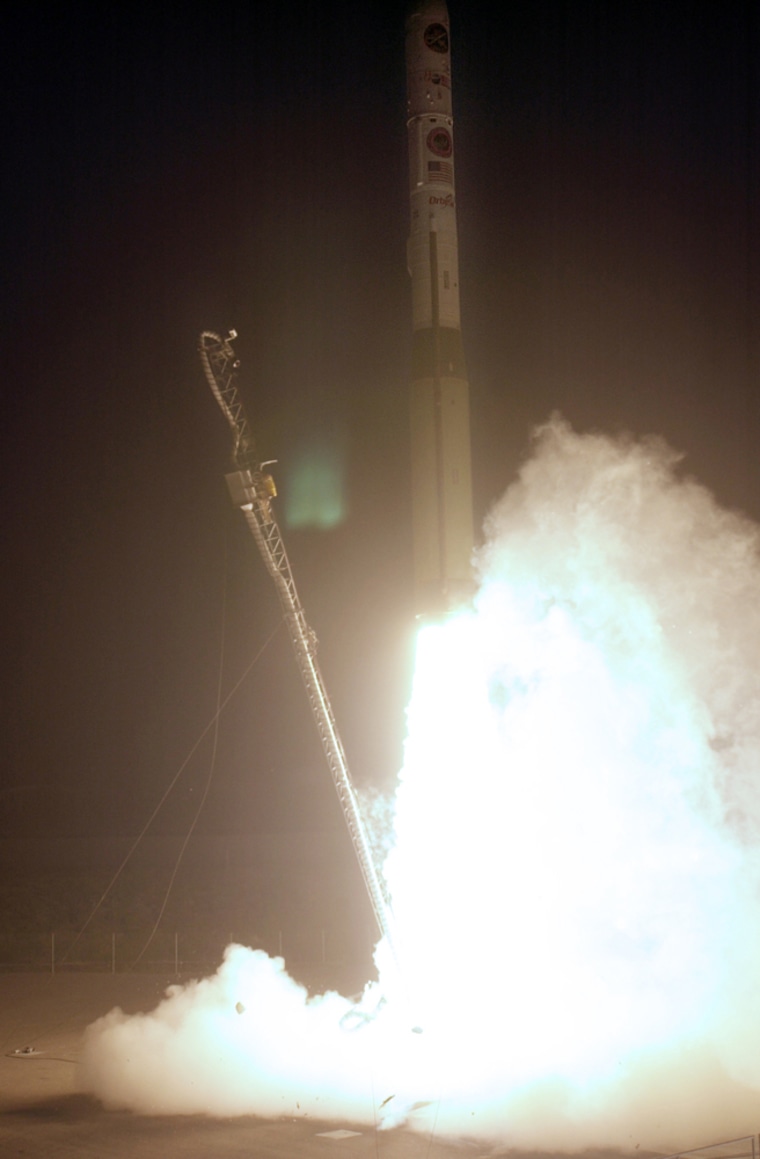The Bush administration is preparing a shift in U.S. space policy to allow for protection of satellites from attack but is not considering putting weapons into space, the White House said Wednesday.
White House spokesman Scott McClellan said the new policy was being developed by the Defense Department and other agencies and had not yet been sent to President Bush for approval or his top aides.
“The policy that we’re talking about is not looking at weaponizing space,” McClellan told reporters. “Now we do have space systems, obviously, and we want to make sure that those space systems are protected.”
But some defense analysts and arms control advocates argued that the policy will pave the way for the United States to deploy both defensive and offensive weapons in space.
“No one should be fooled,” said Theresa Hitchens, an expert on the militarization of space at the Washington-based Center for Defense Information.
“What you’re seeing is a reversal of the traditional U.S. reluctance to be space warriors. And that’s the meaning of this new policy,” Hitchens said in an interview.
Experts expect the White House to issue its new policy next month. They say it would underscore the military’s determination to protect its existing space assets and maintain dominance of outer space.
Space has become increasingly important to how the U.S. military fights wars. Satellites help relay communications among troops, provide intelligence and targeting data and guide bombs to their destinations.
Everett Dolman, a professor at the Air Force’s School of Advanced Air and Space Studies, said Tuesday that work on several technologies — including microsatellites that could be launched to target enemy satellites and satellite-jamming systems — was far enough along that it could be declared operational within 18 months.
McClellan said the new space policy would be an update to a 1996 policy from the Clinton administration.
“I expect it’s likely to continue to emphasize the sovereignty of space systems and the right of free passage of those space systems. We believe in the peaceful exploration of space, and there are treaties in place and we continue to abide by those treaties,” McClellan said.
Since the Clinton policy was put in place, a number of countries have taken an interest in space “and they have looked at technologies that could threaten our space systems,” he said.
McClellan did not name any countries. Some experts have warned that a stronger U.S. military policy in outer space could spur reactions from China and other countries.
Daryl Kimball, executive director of the Arms Control Association, said, “This is a military system that is unnecessary and provocative. It will lead other states to pursue military systems to knock out our space-based assets. The rationale of this program is to defend those assets. But this will have the reverse effect.”
Kimball said any move by the United States to start developing and testing space-based weapons will be met with very strong international condemnation, from foes and allies alike.
Hitchens said the Pentagon, and in particular the Air Force, have been producing doctrine, strategy and policy papers over the past four years that lay the groundwork for space warfare, aimed at changing the Clinton administration’s policy of viewing space warfare as a last resort.
